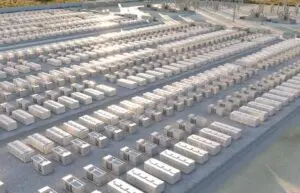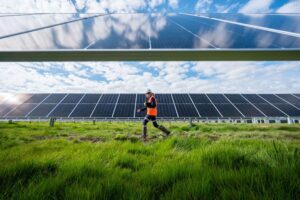The abrupt departure of Bernard Looney, the CEO of British oil and gas giant BP, as a result of undisclosed “personal relationships with company colleagues”, has raised fears of another Big Oil giant turning its back on the green energy transition.
BP published a brief press release on Tuesday announcing that Looney had resigned as CEO “with immediate effect” after investigations began into Looney’s conduct.
“Mr Looney has today informed the Company that he now accepts that he was not fully transparent in his previous disclosures. He did not provide details of all relationships and accepts he was obligated to make more complete disclosure.”
Murray Auchincloss, the BP’s chief financial officer, will act as CEO on an interim basis.
However, concerns have been immediately raised over the possible future of BP’s renewable energy and environmental efforts.
Looney was regarded as the spearhead of BP’s plans to reach net zero operations by 2050 or sooner, announced in 2020. At the heart of BP’s strategy was a focus on offshore wind, hydrogen, and its solar joint venture Lightsource BP.
In Australia, BP has invested millions into green hydrogen projects such as the proposed $30 billion Australian Renewable Energy Hub in Western Australia’s Pilbara region, one of the biggest renewable and green hydrogen projects in the world.
BP’s current global renewable energy strategy is to build a portfolio of 20GW by 2025 and 50GW by 2030, though the company insists on continuing growth in its gas portfolio as well.
However, BP and Looney’s approach to renewable energy has raised the hackles of some investors concerned over the level of profits on the horizon – wanting the company to double down on the fossil fuel windfalls created since the surge gas prices following Russia’s invasion of Ukraine.
Other super-majors like Shell have also reversed course, selling key investments in retail and new technology companies and losing some of its key staff because of the apparent change in course.
Looney recently told Reuters that BP would not be scaling back its energy transition strategy and that BP would be “holding our nerve on the transition”, but under pressure from investors the company had already scaled back plans to cut hydrocarbon production by 2030, to 25% from 2019 levels from 40% previously.
“Depending on the new CEO, BP could theoretically roll back its transition plans further,” Morningstar analysts said in a note reported by Reuters.
“But if the board likes the current direction, regardless of the lagging stock price, they will likely bring in someone who keeps BP on the same path.”
BP has struggled to convince investors it can realise competitive returns from its non-hydrocarbon businesses. It delivered a record profit of $US28 billion in 2022, thanks to its profits from the energy crisis, but its shares have underperformed those Shell, Chevron, and Exxon Mobil.










